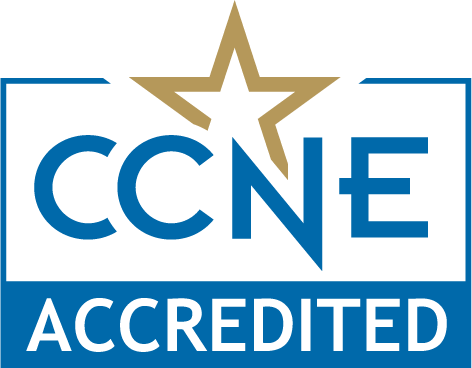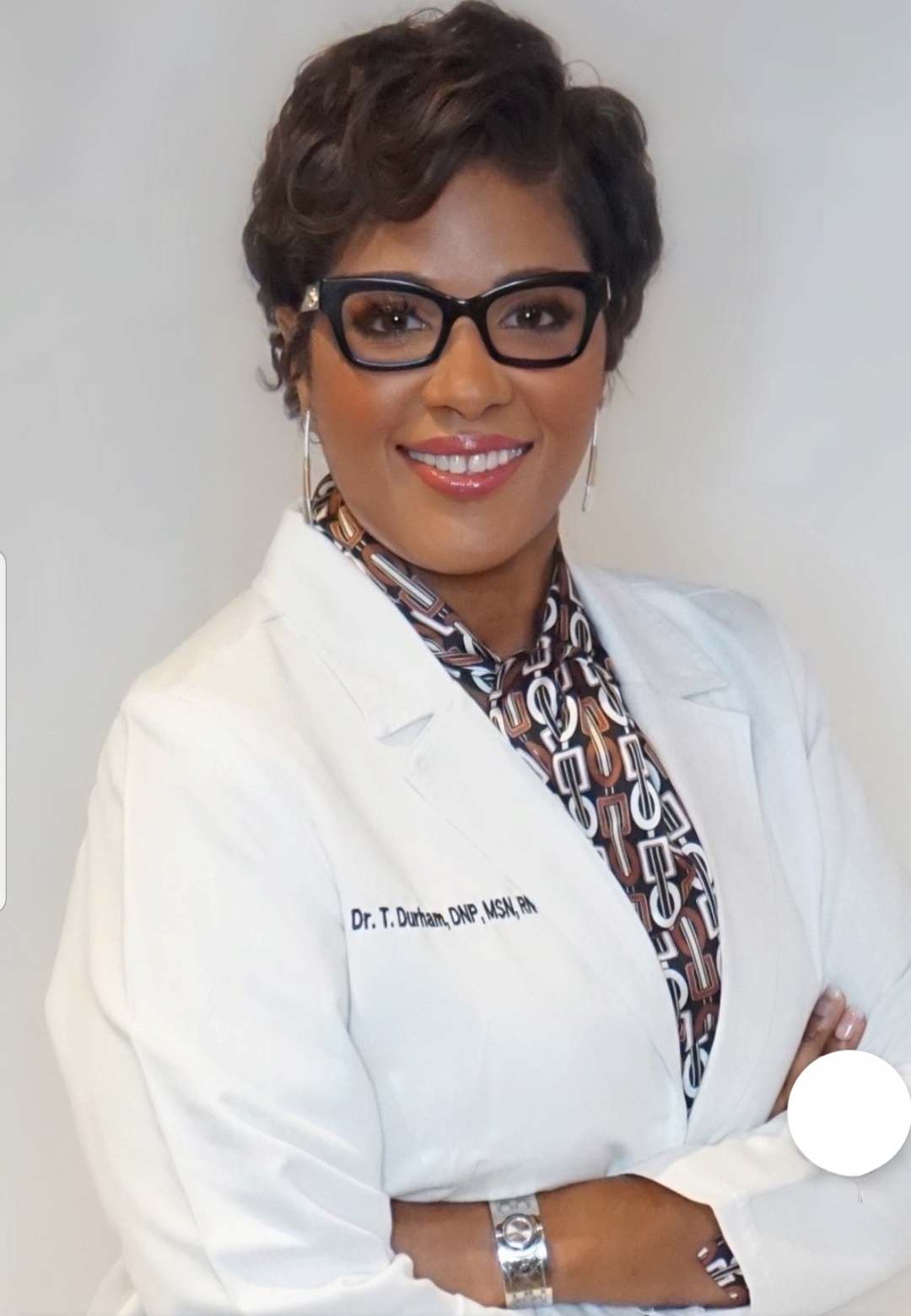|
|
Message from the Director of the RN to BSN Program:
|
Message From Director
The Nursing Program Mission/Vision/Philosophy
The mission of the RN-BSN Program is to advance registered nurses, who are already competent and caring, to meet the population-focused healthcare needs of the community for the sustainable future. The professional program graduates from University of Houston-Downtown will be able to practice within complex healthcare systems exemplifying the roles of: a) member of a profession, b) provider of patient-centered care, c) patient safety advocate, and d) member of the healthcare team.
The RN-BSN program aspires to be the provider of baccalaureate prepared nurses within a diverse downtown community to address the needs and enrich the lived experience of populations in the greater Houston area through leadership and scholarship, address pervasive inequities in health care, enhance the civic readiness and engagement potential of nursing students who will be in positions of leadership.
Vision
The UHD RN-BSN program aspires to be the provider of baccalaureate-prepared nurses within a diverse downtown community to address the needs and enrich the lived experience of populations served through leadership and scholarship in the greater Houston area.
Program Goals:
The UHD RN to BSN program will:
-
- Provide innovative high-impact courses that combine online and face-to-face support for the diverse community of nurses from varied professional experiences.
- Provide a foundation for student research and evidence-based practices to support future graduate study.
- Develop and maintain strong collaborative partnerships with community agencies, organizations, and colleges within the UHD Nursing community of interest.
- Involve faculty and students in community and university transformative leadership initiatives.
- Foster faculty and student research incorporating creative activities to expand scholarly collaborations across UHD and community college disciplines.
Philosophy
The UHD Nursing Program faculty believe that nursing is both an art and science. Nurses improve the health of individuals, families, communities, and populations within the local neighborhood, the state, the nation and the world. The art of nursing is the caring and collaboration that nurses use to foster individual dignity, morals and values. Nurses reflect their ability to use science as a foundation of practice while incorporating concepts of evidence-based practice, health science, and healthcare delivery in order to care for persons as members of society. Faculty view all students as human beings who are unique and multidimensional. Faculty raise professional and social consciences of our students enabling them to become successful leaders in the healthcare workforce. The RN-BSN Program seeks to instill the desire for life-long learning continuing through graduate studies in our students. The UHD RN-BSN Program faculty view the concepts of nursing, person, community, health, caring, collaboration, and evidence-based practice as dynamic, independent and interdependent as defined in the following statements:
Nursing is a caring profession gleaning concepts from multiple disciplines to assist people, families, communities or populations toward health, well-being, and learning to maintain health. Nurses alleviate suffering through the diagnosis and treatment of the human response to illness. The professional nurse advocates for legal, ethical, political or economic issues that may influence a patient's health. In addition, the BSN delivers care in a complex healthcare environment by using delegation and resource management.
A person is a complex being worthy of comprehensive care by a multidisciplinary team. The person is composed of cultural, emotional, intellectual, physiological, and spiritual characteristics. People are responsible for participation in maintaining their own health.
Health is an ever-changing state of well-being. It is an active process measured on a continuum shared by the person, family, community, and population while collaborating with the multidisciplinary healthcare team.
Community is a group of individuals composed of persons who each have cultural, ethnic, religious concerns. A community is a dynamic arrangement within boundaries of a locality and may expand to global in nature.
Caring is the way in which nurses connect with persons with empathy and compassion. Nurses connect with the person, family, community, and population through the translation of principles of altruism, integrity, and social justice into sensitive, safe and exemplary quality care.
Evidence-based practice is the interventional approach that nurses use to deliver high quality care within a systematic problem-solving approach based on scholarly activity.
Collaboration is a partnership that recognizes and accepts others within the healthcare team as unique providers with expertise, power, and a unique sphere of influence. The healthcare team has a commonality of goals that benefit the person receiving care and each member of the team.
RN-BSN Program Expected Student Outcomes
The RN-BSN Program provides problem-based, student-centered learning that demonstrates the acquisition of competencies and proficiencies from the AACN Essentials of Baccalaureate Education for Professional Nursing Practice and The Texas Board of Nursing Differentiated Essential Competencies of Texas Baccalaureate Degree Education Programs.
The graduate will:
Essential I: Liberal Education for Baccalaureate Generalist Nursing Practice
As a Provider of Patient-Centered Care, use knowledge from biological, social, behavioral science, and the humanities to apply the nursing process in care provision to diverse persons, families, communities and populations.Essential II: Basic Organizational and Systems Leadership for Quality Care and Patient Safety
As a Patient Safety Advocate, lead safety and quality improvement activities as a manager and advocate of high-quality patient care.Essential III: Scholarship for Evidence Based Practice
As a Provider of Patient-Centered Care, provide patient-centered holistic care based on evidence-based practice, research, and theory analysis.Essential IV: Information Management and Application of Patient Care Technology
As a Provider of Patient-Centered Care and as a Member of the Healthcare Team, coordinate information resources, use decision-making and patient technology in providing quality care for patients, families, communities, and populations.Essential V: Health Care Policy, Finance, and Regulatory Environments
As a Member of the Profession and a Health Care Team, practice within legal scope of practice, coordinate effective and cost conserving care, and following policies of the practice setting.Essential VI: Inter-professional Communication and Collaboration for Improving Patient Health Outcomes
As a Member of the Healthcare Team, communicate with inter-professional team to plan, deliver, and evaluate care within a safe environment.Essential VII: Clinical Prevention and Population Health
As a Provider of Patient-centered Care, use critical thinking and the nursing process to provide evidence-based preventive and restorative care to patient, families, communities and populations.Essential VIII: Professionalism and Professional Values
As a Member of the Profession, demonstrate professional values fundamental to the discipline of nursing including life-long learning, community interaction, and membership in professional organizations to enhance professional growth.Essential IX: Baccalaureate Generalist Nursing Practice
As a Provider of Patient-Centered Care, provide holistic care to patients, families, groups, communities, and populations across the lifespan in a variety of settings inclusive of the nursing process, leadership principles, and teaching-learning approaches the lifespan and across the continuum of healthcare environments.



